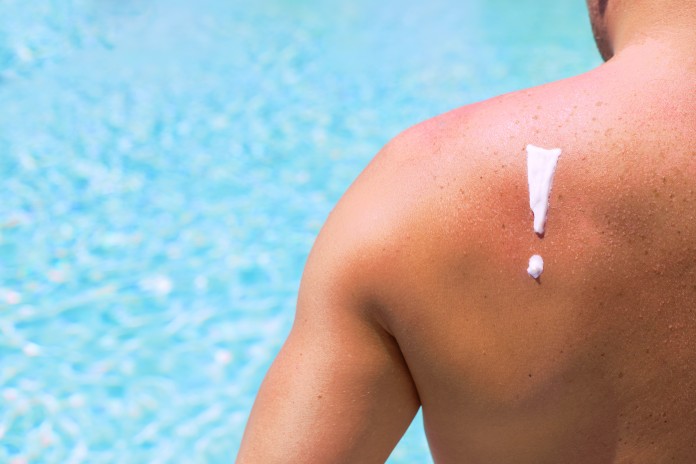Though I am embarrassed to admit, in my young and foolish days you may have found me at a tanning salon. I was not a regular like many of my friends, but I did admire the sun-kissed look. I thought a tan made me look healthier, more vibrant. The serious tanners among my group of friends wore their tan lines like badges of honour.
As a child, I received more than a few sunburns after long days outside with my friends, without sunscreen. A few of those sunburns were severe. If we only knew then what we know now – not only were the burns extremely painful, they also doubled my risk for melanoma later in life.
In a special report on #skin cancer released by the Canadian Cancer Society, it is estimated that children and adolescents who get five or more sunburns have double the risk of melanoma later in life. Like me, I think most thirty-somethings have doubled their risk.
Skin cancer is one of the fastest rising cancers in Canada, despite being one of the most preventable. Overexposure to UV radiation causes about 90 per cent of melanoma cases. If most occurrences can be avoided by shielding ourselves from the sun, why aren’t we doing so?
MORE: IT’S TIME TO START USING THE M-WORD
It is clear that Canadians are not getting the message. Is it because skin cancer is perceived as less serious or deadly than other forms of cancer? Or have we become complacent to the ozone/UV warnings that began nearly two decades ago?
Since these warnings began, two national surveys of Canadians’ sun exposure and protective behaviours have shown that Canadians are spending more time in the sun without adequate protection. In fact, significantly fewer Canadians reported wearing protective clothing and hats in 2006, compared to the decade earlier. Why are so few of us protecting ourselves from cancer-causing UV rays?
Since the link between cancer and smoking was discovered, smoking rates have steadily decreased and continue to do so. In large part, due to successful public awareness campaigns about the risks of smoking and health promotion initiatives to help people quit smoking. If we can get people to stop smoking, likened to the strength of a heroin addiction, surely we can get people to put on hats and sunscreen.
The occurrence and mortality rates for many types of cancer are going down. On the other hand, melanoma has increased significantly in both women and men. Though it is not as deadly as other types of cancer, the disease is a serious one – with approximately 1,050 Canadians expected to die from melanoma this year.
Health care professionals have an important role to play in educating and raising awareness. It is time to start asking patients, “Do you wear sunscreen or protective clothing?” in the same way you would ask “Do you smoke?” Patients need to be informed about the risks and how easy it is to prevent. Even more importantly, health professionals need to stress the importance of ensuring children are protected from the sun. The tanning bed ban on those under 18 in Ontario is a good start, but we need to liken the application of sunscreen to a normal part of the day – like brushing one’s teeth.
MORE: VACCINES ARE SAFE: TIME TO COMMUNICATE IT
Perhaps we should start handing out sunscreen samples in health care facilities. There are always pharmaceutical samples on hand, why not sunscreen? An investment in education and awareness now will eventually lead to savings and decrease the $532-million economic burden of skin cancer.
I cringe at the thought of the hours I spent sunbathing on a beach, or the times I exposed my skin to the harsh lights of a tanning bed. These days, I proudly sport my SPF 60 sunscreen and make putting on sunscreen a routine for my children. It’s like putting on their shoes – before we go outside we put on sunscreen. It’s that simple.


